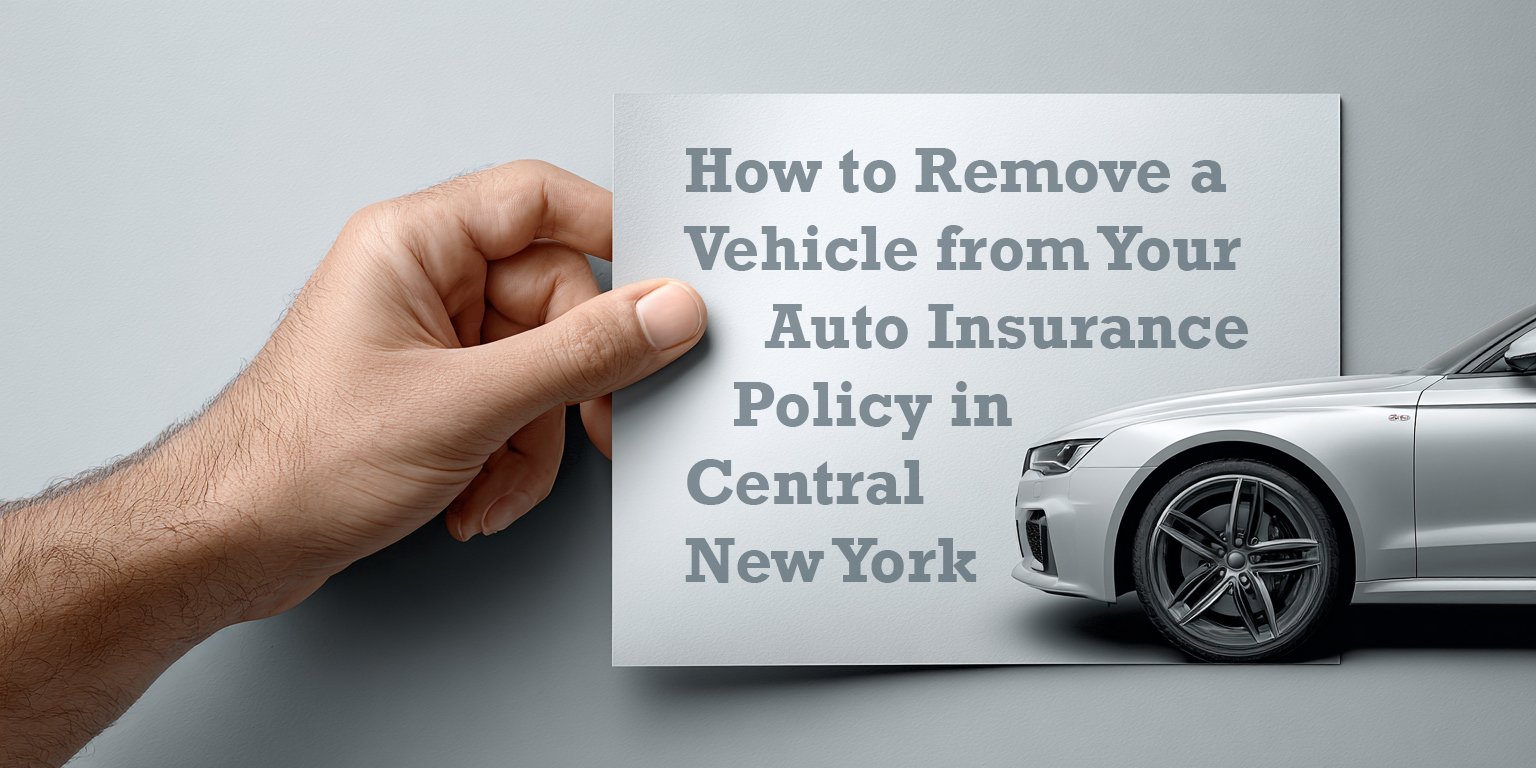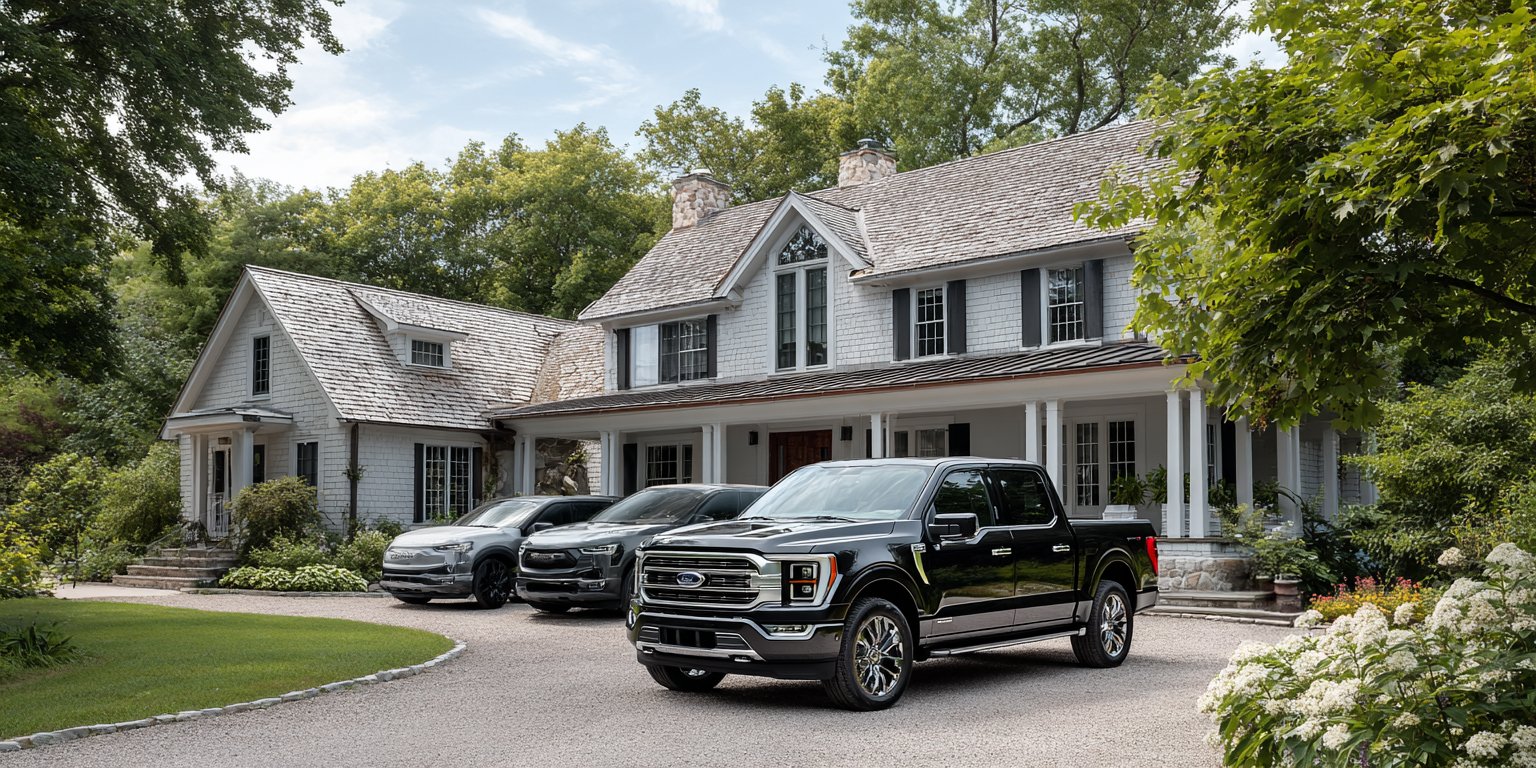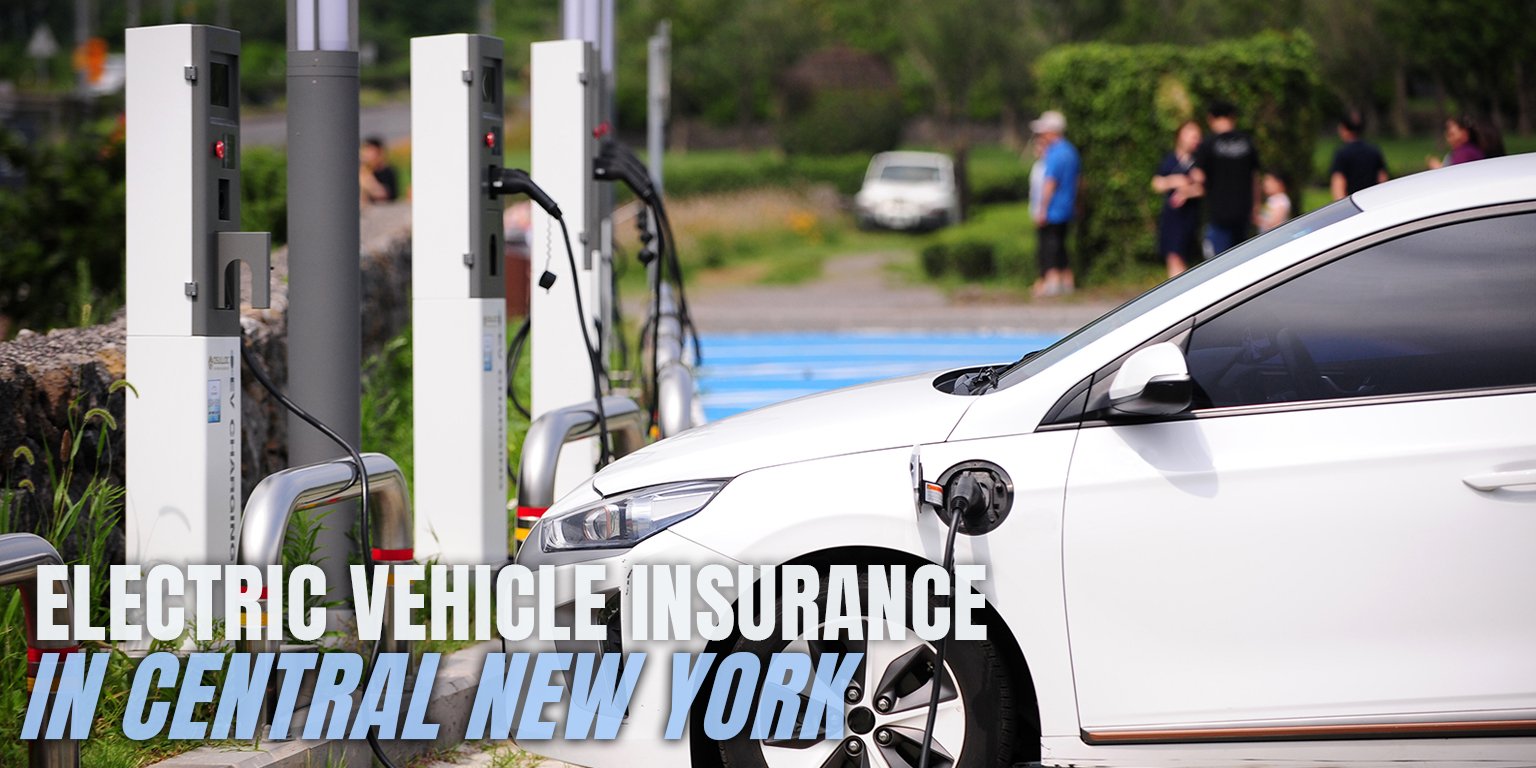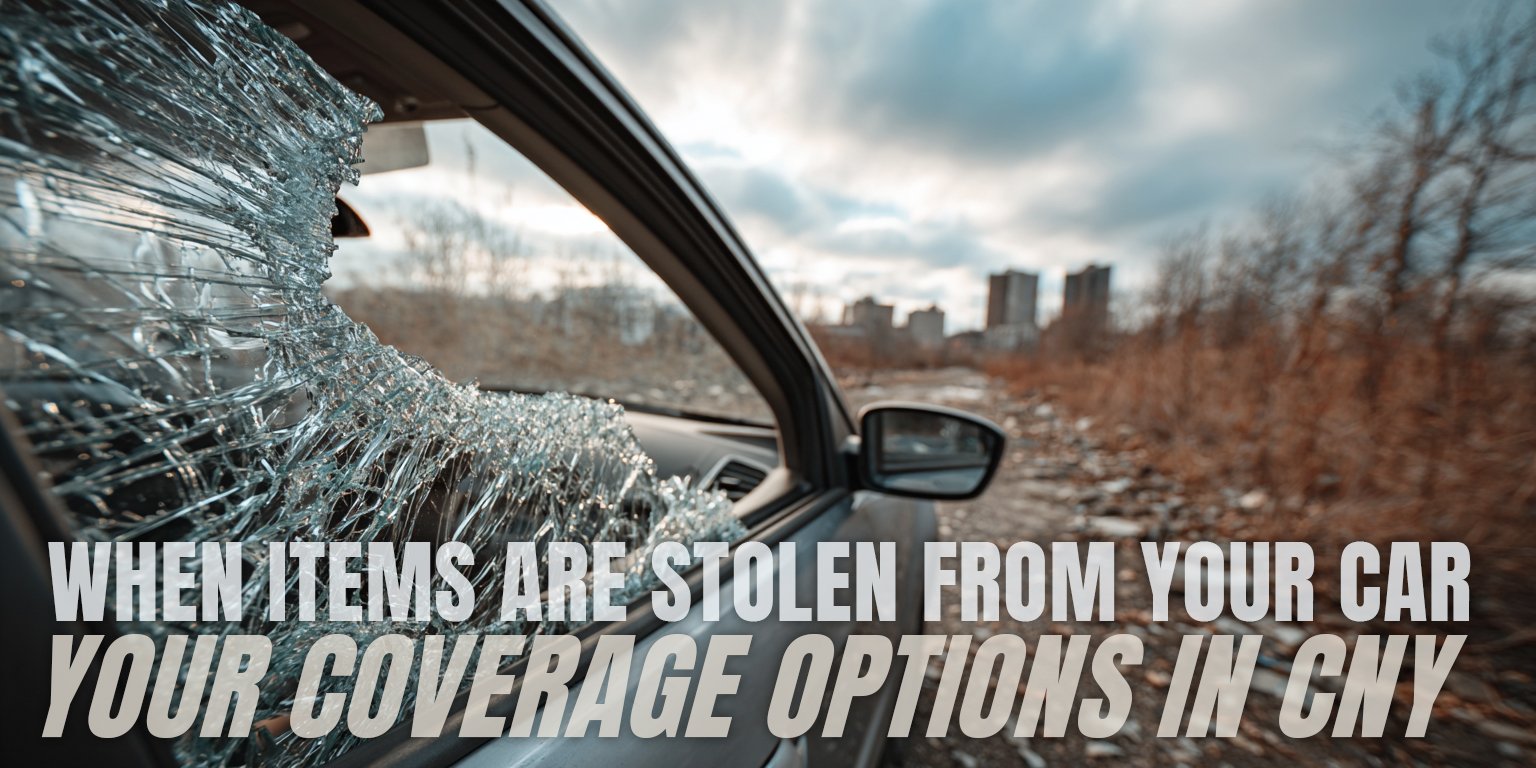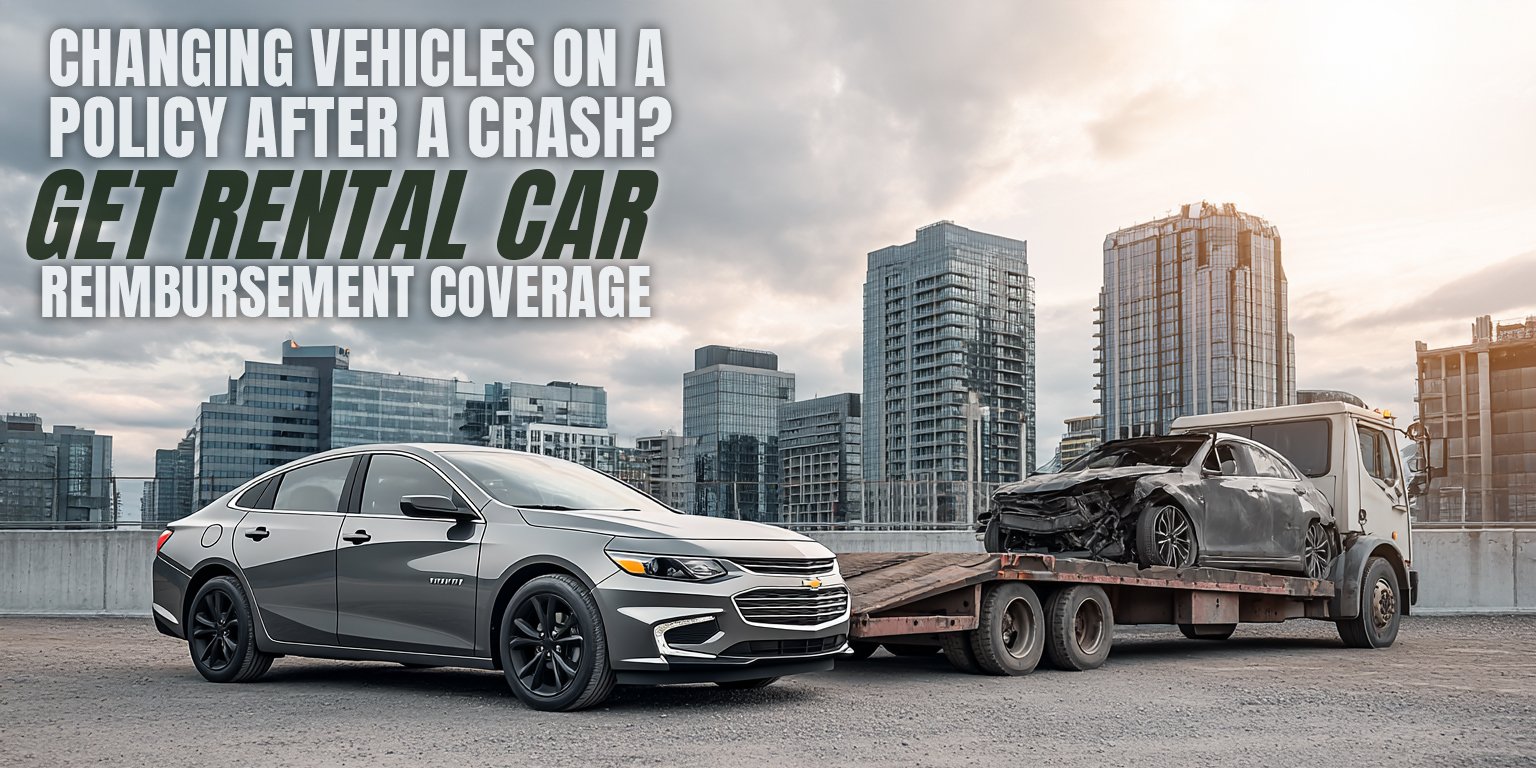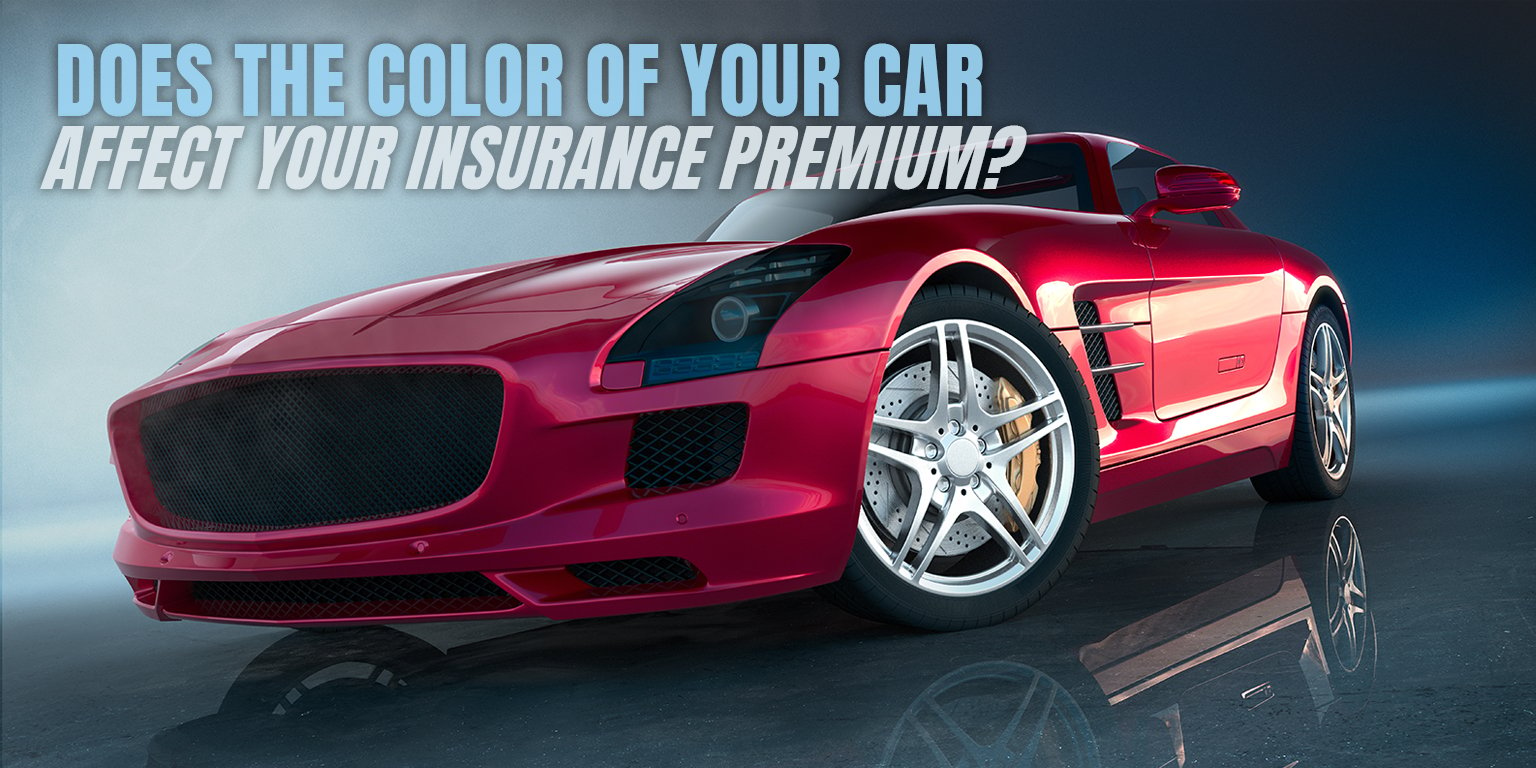The Difference Between Business Use and Commercial Use for Auto Insurance
March 13th, 2024
8 min read
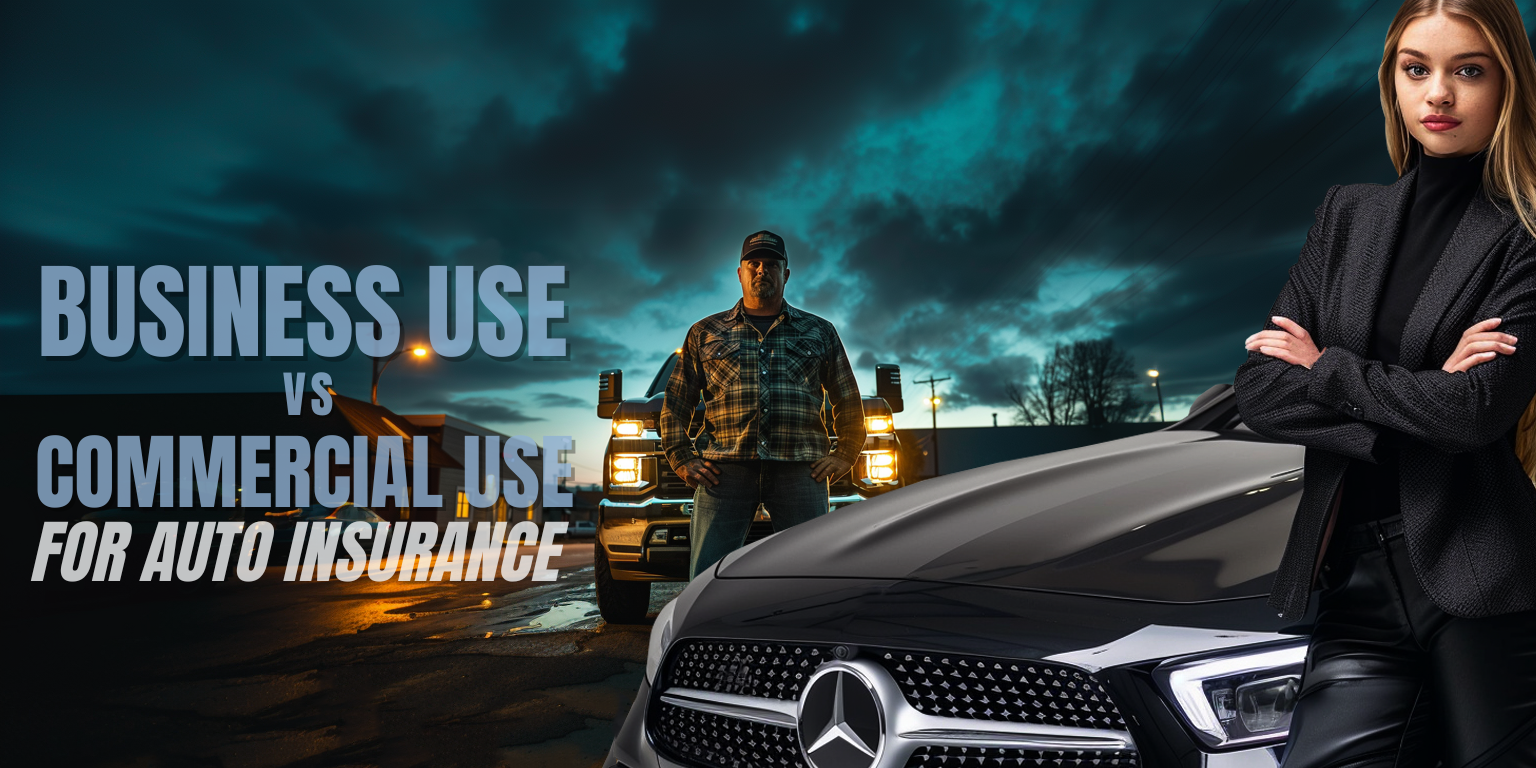
Do you ever use your personal car for work errands, deliveries, or client meetings? If so, you're not alone. But the question remains: are you truly covered?
Many people get tripped up by the complexities of personal auto policies with business use versus dedicated commercial auto insurance. This can leave you exposed to risks and even legal trouble down the road.
We’re Horan, an independent insurance agency in Baldwinsville that understands the unique challenges of mixed-use vehicles. Since 2009, we’ve been offering clear, personalized advice and expertise to help CNY business owners find the best auto insurance solution.
This article will explore the limitations and potential consequences of choosing the wrong policy. We’ll also discuss factors like vehicle size, registration, licensing, and driver listing.
After reading to the end, you’ll gain insight into pricing differences between personal and commercial policies. This will help you budget effectively and choose the option that best suits your situation.
How to Choose Between a Personal Auto Policy and a Commercial Auto Policy
You may have wondered what the difference is between business use and commercial use for auto insurance. You may have heard that business use is for personal auto insurance and commercial use is for commercial auto insurance. But is that really true?
The answer isn’t so simple. It’s not a matter of choosing between business use or commercial use. It’s a matter of choosing between a personal auto policy or a commercial auto policy.
A personal auto policy covers your vehicle for personal use, such as driving to work, running errands, or going on vacation. You can also use your vehicle for some business purposes, such as
- visiting clients,
- making bank runs to deposit checks, or
- driving to the post office to mail off packages to customers.
This is called business use on a personal auto policy.
A commercial auto policy covers your vehicle for any business purpose, whether it’s
- delivering pizza,
- hauling cargo, or
- transporting passengers.
You can also use your vehicle for some personal purposes, such as
- driving home from work,
- going to the grocery store, or
- taking your kids to school.
This is called commercial use on a commercial auto policy.
So, the difference between business use and commercial use is not about the type of use, but about the type of policy. You can use your vehicle for both business and personal purposes, but you need to have the right policy for your specific situation.
What Counts as Business Use on a Personal Auto Policy?
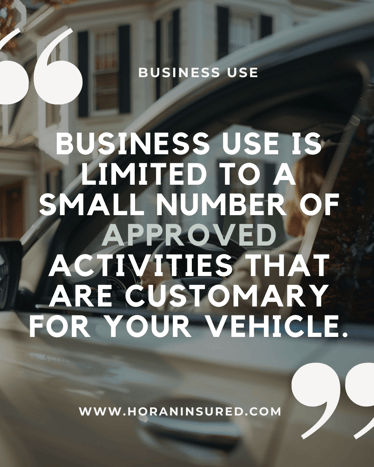 Business use on a personal auto policy is not the same as commercial use on a commercial auto policy. Business use is limited to a small number of approved activities that are customary for your vehicle. You need to declare your business use to your carrier and pay the appropriate premium.
Business use on a personal auto policy is not the same as commercial use on a commercial auto policy. Business use is limited to a small number of approved activities that are customary for your vehicle. You need to declare your business use to your carrier and pay the appropriate premium.
Some examples of business use on a personal auto policy are:
- Being a real estate agent: You use your vehicle to show properties to your clients, attend open houses, or meet with other agents.
- Being an insurance salesperson: You use your vehicle to visit potential customers, deliver policies, or attend seminars.
- Being an outside sales rep: You use your vehicle to carry samples, booklets, swatches, or fabrics to your appointments. You show your products to your clients and take orders.
These are some of the common scenarios that qualify as business use on a personal auto policy. However, there are many other situations that aren’t covered here. You should always check with your agent or carrier before using your vehicle for any business purpose.
How Business Use Impacts Your Personal Auto Policy
When you use your vehicle for business purposes, you’re not just using it for personal reasons. You’re also using it for work-related activities, such as meeting clients, delivering goods, or transporting tools. This means you’re exposing your vehicle to different risks, such as
- more mileage,
- more wear and tear, or
- more liability.
That’s why you need to inform your carrier that you use your vehicle for business use on your personal auto policy. Your carrier will adjust the premium accordingly, based on the type and frequency of your business use. This way, you can ensure that you have adequate coverage for your vehicle in case of an accident or a claim.
If you don’t declare your business use to your carrier, you may face some consequences. Your carrier may
- deny your claim,
- cancel your policy (through non-renewal), or
- charge you a penalty.
You may also be liable for any damages or injuries that you cause to others while using your vehicle for business purposes.
Therefore, it’s important to be honest and accurate about your business use on your personal auto policy. It’s better to pay a little more for your premium than to risk losing your coverage or facing legal troubles.
The Criteria for Commercial Use on a Commercial Auto Policy
Commercial use on a commercial auto policy isn’t limited to a small number of approved activities, but covers many business purposes your vehicle is used for. You need to have a commercial auto policy if your vehicle meets any of the following criteria:
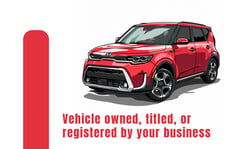 Your vehicle is owned, titled, or registered by your business. This means that your vehicle is considered a commercial vehicle, regardless of its make and model. For example, a Kia Soul owned by your business is a commercial vehicle, even though it’s not a large truck.
Your vehicle is owned, titled, or registered by your business. This means that your vehicle is considered a commercial vehicle, regardless of its make and model. For example, a Kia Soul owned by your business is a commercial vehicle, even though it’s not a large truck.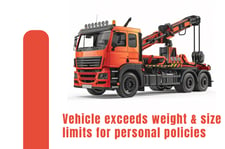
- Your vehicle exceeds the weight and size limits for personal auto policies. This means that your vehicle is too big or heavy for a personal auto policy, and needs a commercial auto policy instead. Typically, these are larger trucks that have a higher payload, such as dump trucks, tow trucks, or tractor-trailers.
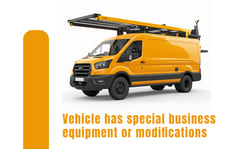
- Your vehicle has special equipment or modifications for your business. This means that your vehicle has features that are not common for personal use, such as ladder racks, tool boxes, refrigeration units, or hydraulic lifts. These features may increase the value or liability of your vehicle, and require a commercial auto policy to cover them.
This list covers some key factors that determine whether your vehicle is considered “commercial” under your commercial auto policy. However, it’s not exhaustive. To ensure your coverage remains valid when using your vehicle for any business purpose, always consult with your insurance agent or carrier beforehand.
The Differences Between Glass Coverage on a Personal Auto Policy and a Commercial Auto Policy
Glass coverage is an optional feature that covers the cost of repairing or replacing your vehicle’s windshield, windows, or sunroof in case of damage. Glass coverage can be very useful, especially if you drive a lot or in areas where glass damage is common.
However, glass coverage is not the same on a commercial auto policy as on a personal auto policy. On a personal auto policy, you can have full glass coverage with a $0 deductible for any vehicle, including a Chevy Silverado. This means that you don’t have to pay anything out of pocket for glass repairs or replacements.
On a commercial auto policy, though, glass coverage is more limited. It depends on the type of vehicle and the carrier. Some carriers may not offer glass coverage at all, while others may only offer it for certain vehicles.
Generally, glass coverage is only available for private passenger autos that are insured commercially, such as
- sedans,
- coupes, or
- SUVs.
For example, if you’re a business owner and you drive your Mercedes on a commercial auto policy, you can have full glass coverage with a $0 deductible.
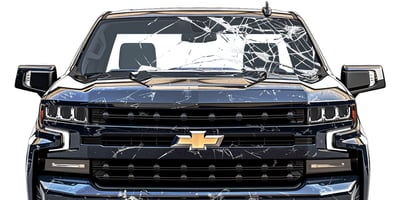 But if you drive a larger or heavier vehicle, such as a Silverado, on a commercial auto policy, you won’t have glass coverage. You’ll have to rely on your comprehensive coverage, which has a deductible. This means you’ll have to pay a portion of the cost for glass repairs or replacements.
But if you drive a larger or heavier vehicle, such as a Silverado, on a commercial auto policy, you won’t have glass coverage. You’ll have to rely on your comprehensive coverage, which has a deductible. This means you’ll have to pay a portion of the cost for glass repairs or replacements.
Therefore, it’s important to know how glass coverage works on a commercial auto policy, and whether it’s worth it for your vehicle. You should always compare the benefits and costs of glass coverage with different carriers and vehicles before making a decision.
Business Drivers vs Personal Drivers Who Use Your Vehicle
If you use your vehicle for both business and personal purposes, you need to have a commercial auto policy that covers both types of drivers. A commercial auto policy is different from a personal auto policy, as it provides higher liability limits, broader coverage, and more flexibility for listing drivers.
Business Drivers Who Use Your Vehicle
Business drivers are those who use your vehicle for any business-related activity, such as delivering goods, transporting clients, or visiting work sites. You need to list all the business drivers on your commercial auto policy, regardless of whether they are your
- employees,
- contractors, or
- partners.
Personal Drivers Who Use Your Vehicle
Personal drivers are those who use your vehicle for non-business purposes, such as your
- spouse,
- children, or
- friends.
These drivers are not related to your business use, and they may have their own personal car insurance.
These drivers aren’t related to your business use, and they may have their own personal car insurance. However, unlike a personal auto policy, a commercial auto policy can cover both business and personal drivers, as long as you list them on your policy.
This is important because a personal auto policy, even with occasional business use coverage, typically only applies to listed drivers for personal use.
This means that if an unlisted driver uses your vehicle and causes an accident, your personal auto policy may not cover the damages. To avoid this risk, you have two options:
- List all the personal drivers on your commercial auto policy as well, and provide their information to your carrier. This may increase your premium, but it will also ensure that you have adequate coverage for any driver who uses your vehicle.
- Make sure that all the personal drivers who use your vehicle have their own adequate insurance that covers them when they drive your vehicle. You may need to check their policies and confirm that they have sufficient liability limits and coverage for any damage they may cause to your vehicle.
How to List Drivers on Your Commercial Auto Policy
To list drivers on your commercial auto policy, you need to contact your agent or carrier and provide the following information for each driver:
- Name
- Date of birth
- License number and state
- Driving history
- Relationship to you or your business
Your carrier will then review the information and adjust your premium and coverage accordingly. You may also need to update your policy periodically, as your drivers may change over time.
How Pricing Works for Business Use and Commercial Use
Pricing is another factor to consider when you choose between business use and commercial use for auto insurance. Generally, commercial use is more expensive than business use, because it involves higher risks, larger vehicles, and more coverage.
Business Use Pricing
Business use is an add-on to your personal auto policy, which means that you pay a higher premium than for personal use only. The amount of the premium depends on how many miles you drive for business purposes.
Business use can add up to $300 or more annually to your policy, depending on your carrier and your vehicle.
However, business use has a limit on how much you can drive for business purposes. Some carriers may not accept you if you drive more than 20,000 miles a year for business use. They may consider you too risky for a personal auto policy, and suggest that you switch to a commercial auto policy instead.
Commercial Use Pricing
Commercial use is a separate policy from your personal auto policy, which means that you pay a different premium based on your vehicle and your business. The premium is usually higher than for business use, because it covers more scenarios, such as
- delivering goods,
- transporting passengers, or
- attached operating equipment (e.g., winch or snowplow)
Compare pricing for business use and commercial use for auto insurance, and see which one is more suitable for your situation. You should always check with your carrier before using your vehicle for any business purpose, and get a quote for the best policy for your needs.
How Registration and Licensing Works for Business Use and Commercial Use
Registration and licensing are two other aspects to consider when you use your vehicle for business purposes. You may have some questions about what kind of license you need, or whether you need to register your vehicle commercially. The answer depends on what the DMV requires for your vehicle, not on what type of policy you have.
The DMV sets the rules for how you register and license your vehicle, based on its weight, size, and use. You need to follow these rules, regardless of whether you have a personal auto policy or a commercial auto policy.
For example, if the DMV says that your vehicle is too big or heavy for a personal auto policy, and that it needs a special plate or license, then you need to register it as a commercial vehicle.
However, if the DMV says that your vehicle is eligible for a personal auto policy, and that it doesn’t need any special plate or license, then you don’t need to register it as a commercial vehicle. You can use your vehicle for business purposes, as long as you have the right policy for your situation.
For example, if you own a Ford F-150, and you use it for both personal and business purposes, you don’t need to change your registration or license. You just need to insure it commercially, and make sure that you have enough liability coverage.
Therefore, it’s important to know what the DMV requires for your vehicle, and how it affects your registration and licensing. You should always check with the DMV before using your vehicle for any business purpose, and make sure that you comply with their rules.
We Can Help You Take Control of Your Auto Insurance Journey
Don’t let auto insurance confusion leave you stranded on the side of the road, facing financial burdens and legal headaches.
Understanding the key differences between business use on a personal auto policy and commercial auto insurance is crucial to ensure you have the right protection for your vehicle, regardless of personal or business needs. This knowledge empowers you to avoid potential financial burdens and legal issues down the road.
By considering factors like vehicle type, usage frequency, and driver coverage needs, you can make an informed decision between business use and commercial auto insurance.
No more worries, just the freedom to drive with composure and security. We can help you take control of your auto insurance journey.
Horan is here to ensure that you have the right coverage and comply with all regulations.
Click the Get a Quote button below for a free consultation. We can tailor an auto policy to the way you drive your vehicle and run your CNY business.
Daniel is an accomplished content creator. He has been working in publishing for almost two decades. Horan Companies hired Daniel as its content manager in November 2022. The agency entrusted its messaging to him. Since then, Daniel has written insurance articles, service pages, PDF guides, and more. All in an effort to educate CNY readers. He's helping them understand the world of insurance so they can make informed decisions.
Topics:




